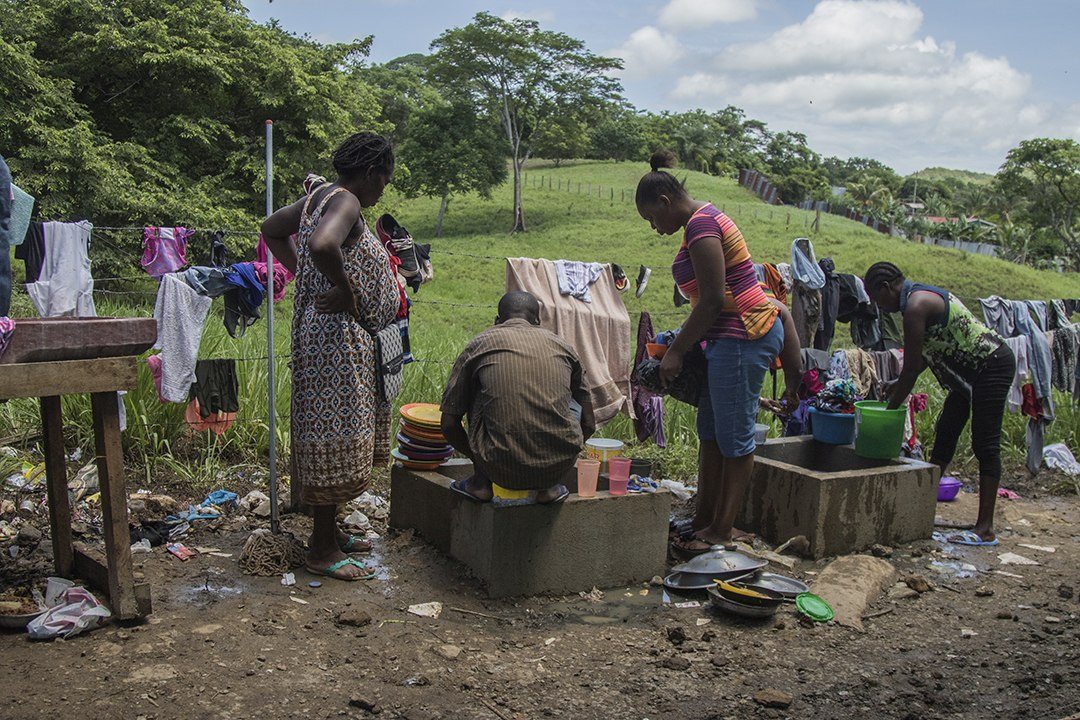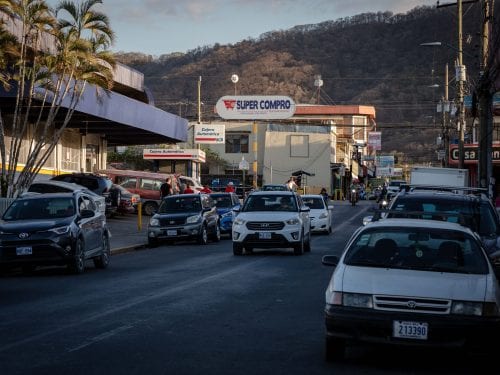
In recent months La Cruz has become a place of perpetual limbo for hundreds of unfortunate migrants stranded here, who have left their countries in search of jobs and a dream called the United States. But residents of this canton, the second poorest in Costa Rica according to the Social Progress Index, feel a disconnect from the processes that bring the migrants every day to neighborhoods like Las Vueltas and El Jobo, where they wait with their children and a few belongings for signs of hope that one day they’ll be allowed to cross the border.
Some manage to cross on their own, risking the dangers of the jungle, including snakebites, perilous falls in rivers and unbearable muscular pain. Most return empty-handed.
During a recent visit to the border in mid-July, we encountered a hostile atmosphere between residents and migrants. Some locals do help by offering electricity to charge cellphones, accompanying them to withdraw money sent by family members, or simply providing a warm cup of coffee. Many locals, however, are angry because they haven’t been asked “permission” for the migrants to be there in the first place.
The situation is drastically different than the recent aid provided to Cuban migrants, who found a welcoming community with open arms. “It’s probably due to racism,” local priest Orlando Figueroa told us.
Most troubling is that these migrants are living in extremely difficult circumstances, without money or passports. What will happen to them? Not even government officials have an answer.
While we know that no country has completely resolved the issue of migration, officials here would be wise to include members of the community in future discussions and decisions. That isn’t to say these migrants should be expelled, which is what many locals likely would ask for, but rather to find solutions together. If the situation is to become a long-term problem, it’s better to start seeking complementary answers now.
In a country whose population is aging rapidly, demographics show that immigration is a determining factor in invigorating the economy. What would happen if we offer options to begin legalizing undocumented migrants instead of continuing to complain about their presence?







Comments